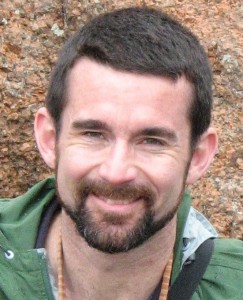 “Not again . . . ” The mom with the troubled teen is late for their appointment . . .
“Not again . . . ” The mom with the troubled teen is late for their appointment . . .
“Not again . . . ” The elderly widow needs me to explain, one more time, why and how to take her medications . . .
“Not again . . . ” The middle aged diabetes patient has missed yet another routine blood pressure check . . .
Medical culture today seems designed to thrive on order. We have our protocols, our schedules, our guidelines, and our clinical performance metrics. We try to anticipate how long each type of appointment will take, so the time slot is just the right length.
We now (in the United States) are measured on whether we screen all older patients for falls risk and for depression (although I can’t think of a single situation in which that information has told me something new about the person in front of me). We are implementing more and more systems to keep medicine organized, on schedule, on track, and performing up to snuff, but in the process we are beginning to miss the point.
Don’t get me wrong, medicine has taken a lot of cues from the aviation sector in designing systems for error prevention and safety, and just as I want my airliner and flight crew to be performing at top notch when I travel (I really don’t want to fall out of the sky!), I also want my doctor and caregivers to be performing at top notch when I’m sick or need their care (I don’t want to fall off the exam table, either!). Unfortunately, the focus on order tends to subtly warp our concept of our mission, so that we think order is the point of what we do.
Whether you prefer literary, scientific, or spiritual interpretations, life is fundamentally messy:
“But, Mousie, thou art no thy lane, In proving foresight may be vain; The best-laid schemes o’ mice an’ men Gang aft agley . . . ” Robert Burns, To A Mouse
“In a natural thermodynamic process, there is an increase in the sum of the entropies of the participating systems . . . ” Second Law of Thermodynamics
“To every thing there is a season, and a time to every purpose under the heaven: A time to be born, and a time to die; a time to plant, and a time to pluck up that which is planted . . . ” Ecclesiastes 3: 1-2
Caring in medicine is fundamentally about meeting our patients in the midst of their chaos. The mom with the troubled teen is late again, because of juggling work and a blended family. The elderly widow needs repeated explanations, because she can barely hear and her complex medical regimen keeps changing. The diabetes patient with out of control blood pressure may be reducing my rate of “treated to target” patients, but he insists he needs to see the doctor only when he feels unwell.
In parenting, providing an appropriately structured and safe home environment is important for providing our children with the sense of security and identity they need in order to face the world and deal with the uncertainties in life. In a similar way, caring for the sick involves helping our patients restore some degree of order, proper function, or equilibrium. Even with palliative or end of life care, we are trying to at least provide some comfort in the face of the ultimate uncertainty.
However, the question we need to keep asking ourselves (both as individuals, and collectively as a medical community), is whether we are trying to maintain our own sense of order, or are we meeting people with comfort and healing in the midst of their chaos.
In thinking through this blog, and the frustration I sometimes feel when I don’t want to deal with my patients’ chaos because it’s not what I’m expecting on a given day, I kept returning to the aphorism “expect the unexpected.” An internet search for the origin of the phrase led me to an interesting quote from Kapil Sharma:
“The talented few among the Air Force pilots are made test pilots. Test pilots are best suited to look at the space programme as they are trained to expect the unexpected.”
When importing systems and processes from aviation into medicine, all in the laudable effort to improve safety and work for better outcomes, we need to remember that aviation is not just about meeting schedules and following procedures—rather, these all serve to make the pilot better prepared for the unexpected. And perhaps, with all due respect, the model for the physician should not be the airline pilot, but the test pilot.
In meeting our patients in the midst of their chaos, the point is not whether or not they fit into how we want to order things. Rather, the point is expecting the unexpected, so that when we meet them in their chaos we can find ways to bring comfort and healing.
William E Cayley Jr practices at the Augusta Family Medicine Clinic; teaches at the Eau Claire Family Medicine Residency; and is a professor at the University of Wisconsin, Department of Family Medicine.
I declare that that I have read and understood BMJ policy on declaration of interests and I have no relevant interests to declare.
